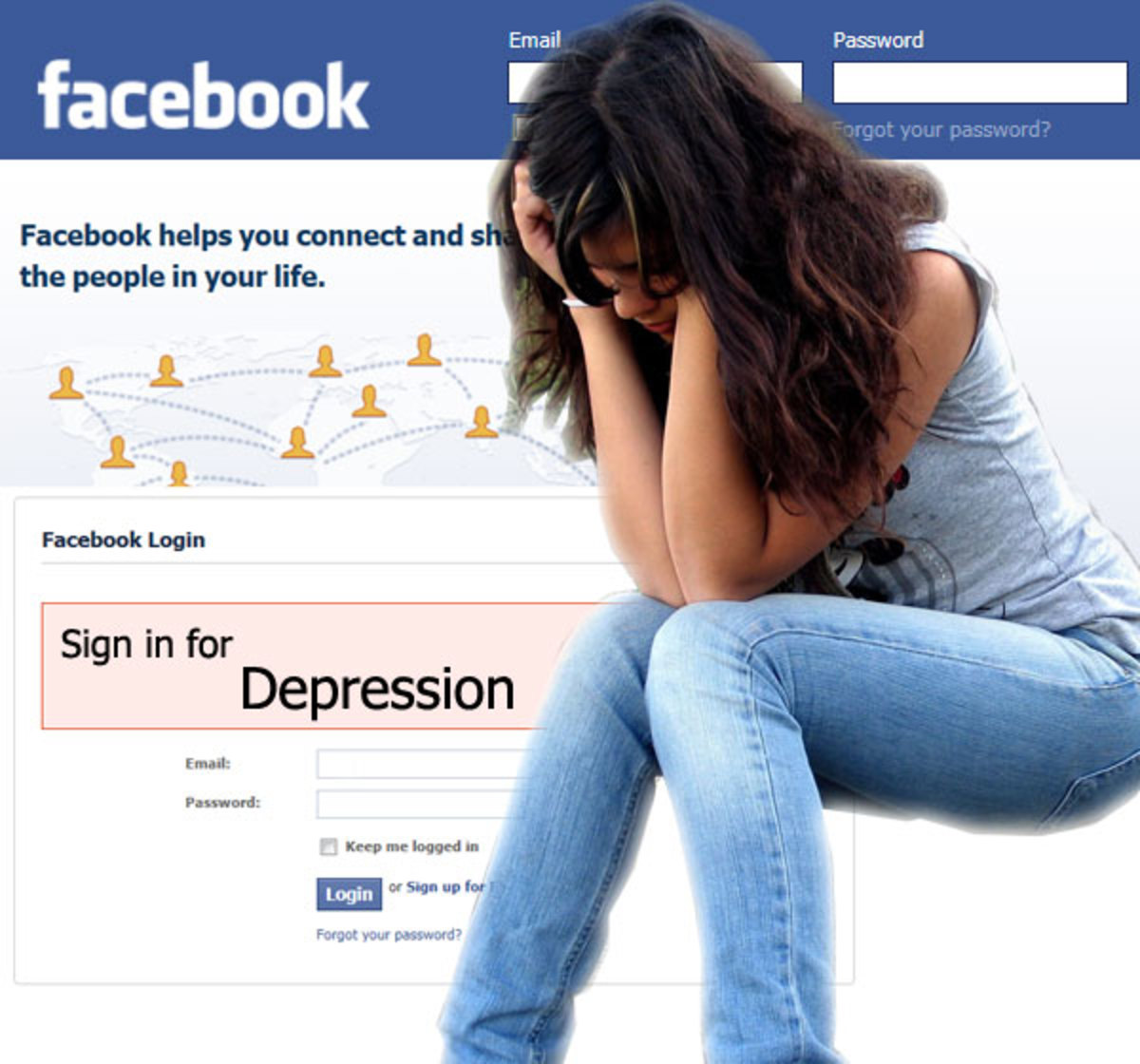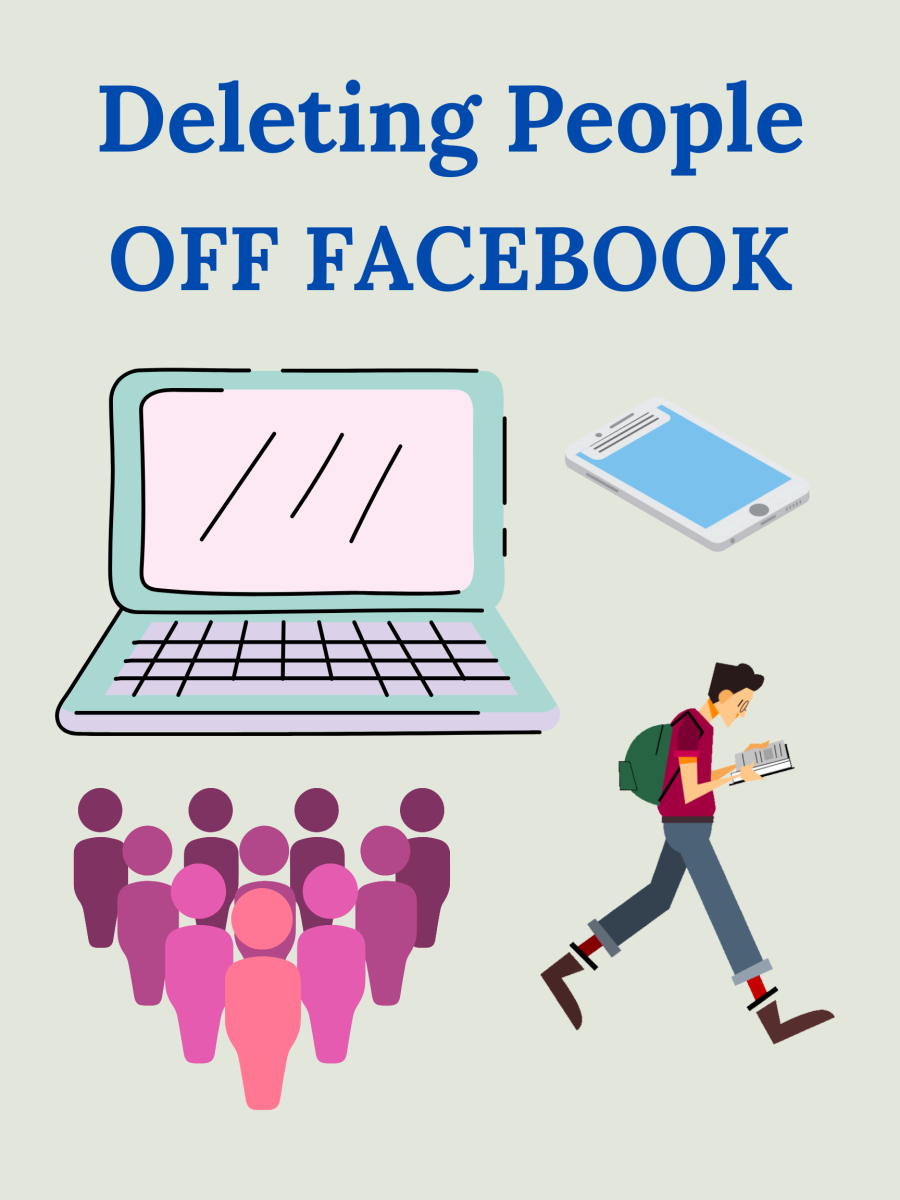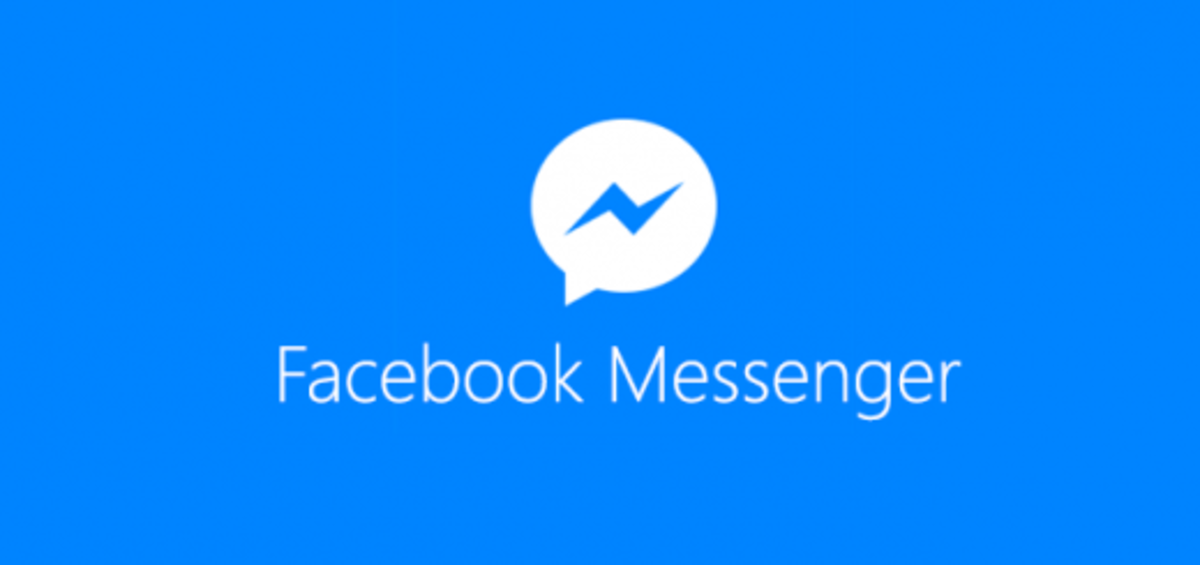The Future of Radical Honesty
Take a second and consider how many times you've lied today. Was it once, twice, or three times even? Or have you lost count? Some of us lie so naturally (usually in the form of little white lies, like "Oh, I'm great today, thanks!" or "No, I don't mind.") that we don't even realize we're doing it.
But what if these white lies, and slightly less 'honorable' lies in general, are going out of vogue? What it we're entering into a period of radical honesty?
I have noticed radical honesty and general openness cropping up all over the place lately. I've seen it discussed in books, magazine articles, and blog posts. Greater honesty also appears to be bubbling up in the behavior of my friends, acquaintances, and family. To see if this trend has any potential, I did a spot of research, and have come to the conclusion that we do indeed seem to be slowly moving toward a more honest age.
I've collected my findings below. Have a look at some major examples of this trend in popular culture- and let me know what you think of it all!
Scott Westerfeld's Extras

Radical Honesty in Teen Science Fiction
Believe it or not, I was first introduced to the concept of radical honesty in the form of teen science fiction.
Frizz Mizuno, a character in Extras, the final book of Scott Westerfeld’s Uglies series, is famous for developing Radical Honesty. In this case, the movement takes form in a clique of teens who get brain surgery to literally prevent themselves from lying. The alteration leads to a refreshing way of life, and helps boost Frizz to a high position in the social hierarcy (something very important in a futuristic society in which clout has become actual currency).
Radical honesty nevertheless becomes inconvenient when Frizz and his friends get caught up in a conspiracy of sorts, and the young man's uncontrollable honesty compromises the safety of those he cares for most.
Frizz Mizuno's lifestyle choice plays an important role in the book's overarching theme exploring lies and honesty, but also prompts the reader to consider a futuristic society that, while removed, is already somewhat present today. After all, social clout is gaining real world meaning with every passing day (just look to the rise of Klout, which gives individuals tangible perks for demonstrating a strong influence across social media channels), and radical honesty is hardly an abstract concept.
Dr. Brad Blanton's Books
Weigh in!
What do you think of the concept of *radical* honesty
Radical Honesty as a Real, Modern Day Movement
Indeed, radical honesty is by no means relegated to the world of science fiction. It is in fact the name given to a very real self development movement developed and championed by one Dr. Brad Blanton.
Dr. Brad Blanton is a seminar leader and author who, in addition to being trained in Gestalt Therapy and hypnosis, holding a position as founding president of the American Society of Clinical Hypnosis, and acting as a fellow of several psychiatric, psychological, and psychopathological associations, has run for the U.S. House of Representatives twice.
Dr. Blanton believes that lies are a significant source of stress in our lives, and urges us to stop telling them (no matter how polite or small they may be) so that we may enjoy more open lives and deeper relationships.
In addition to selling a book detailing the adoption of radical honesty (which, I must emphasize again, involves being EXTREMELY open about one's feelings), Dr. Blanton runs rather pricey therapy sessions and group seminars. His methods seem abrupt at times, and more than a few individuals have labeled his personal development program as a cult.
In my (quite meaningless) personal opinion, I must admit that the program seems to encourage people to be much more rude and base than necessary (there are ways to be brutally honest in a classy manner. See all characters played by Maggie Smith), and I do not think I would adopt the precise methods Dr. Blanton recommends.
That said, I like the idea of reducing personal stress and enjoying deeper relationships with others by being more up-front and honest, and think that the basic logic and ideas behind Dr. Blanton's concept are sound- and indicative of a larger societal trend.
Radical Honesty and Search Trends
When I want to test to see whether a certain concept is gaining some hold in our general cultural consciousness, I turn to Google Trends to look for patterns in search behavior. To have a closer look at searches regarding honesty, I had a look at terms related to white lies, and terms related to a more blunt approach.
In general, it looks like fewer people are Googling about “honesty” (as well as keywords like manners, politeness, white lies, and polite) today while searches on honesty are holding steady (and terms such as truthfulness, radical honesty, be honest, and tell the truth) are moderately up.
Searches on Etiquette
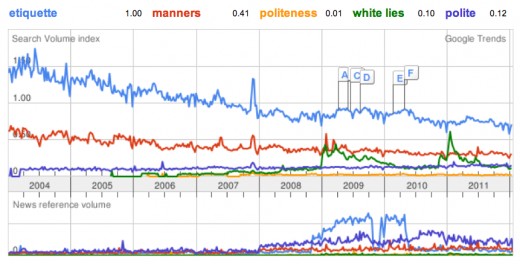
Searches on Honesty
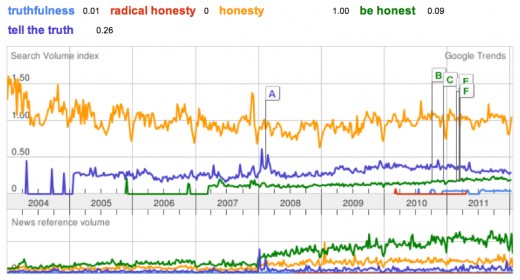
Be Honest...
Do you think your social media behavior has led you to be more honest in real life?
Radical Honesty and Social Media
While there seems to be growing interest on actively becoming more honest, there also seems to be more passive honesty taking place, mostly thanks to social media. Consider the various ways in which social media is making us more honest (often without us realizing it).
We are living in an age of...
- More voluntary sharing on social media sites like Twitter,
- More public profiles,
- Check-ins using various apps like Foursquare, location-tracking apps like Find Your Friends and Google Latitude,
- Health apps that share things such as weight, calorie intake, and exercise with friends (even scales that wirelessly sync with your computer and publish your weight),
- And even frictionless sharing on Facebook (which tells your friends what you're reading, watching, and listening to without asking you to push a "share" button first).
Even if we may not be trying to be more honest, it is more difficult to be dishonest when our personal and professional lives are displayed in a very public, traceable manner.
For Further Investigation
- I Think You're Fat - Esquire
An excellent exploration of Dr. Brad Blanton's radical honesty program by A.J. Jacobs of Esquire Magazine. - Frequently Asked Questions | Radical Honesty
The FAQ section of Dr. Brad Blanton's site on radical honesty. Good for a quick explanation of his philosohpy.
Getting Ahead of Ourselves
In many ways, social media-induced radical honesty may be forcing us to live radically honest lives before we're ready to do so.
In 2011, a collection of attorneys from Raleigh, North Carolina shared that a majority of divorce cases they handle are related to problems with a spouse’s behavior on social networking sites.
What's more, the UK-based Divorce Online found that 33% of behavior-based divorces included issues involving Facebook (namely inappropriate messages to members of the opposite gender, separated spouses posting nasty comments, and Facebook friends reporting spouses’ behavior).
Radical Honesty is On the Rise - Why Not Accept It?
Whether we like it or not, it is becoming more difficult to lie. So why resist? Radical honesty strikes me as much easier... not to mention somewhat inevitable.
At least on a personal level, I've decided to leave off lies for a year and see how it goes. What about you? Would you like to be more honest? Do you think being more honest reduces stress and leads to better relationships with others? Or are you already happily honest all the time and don't know what the big fuss is?
Share your thoughts and comments on this trend below. I would love to know what you think about it all!




